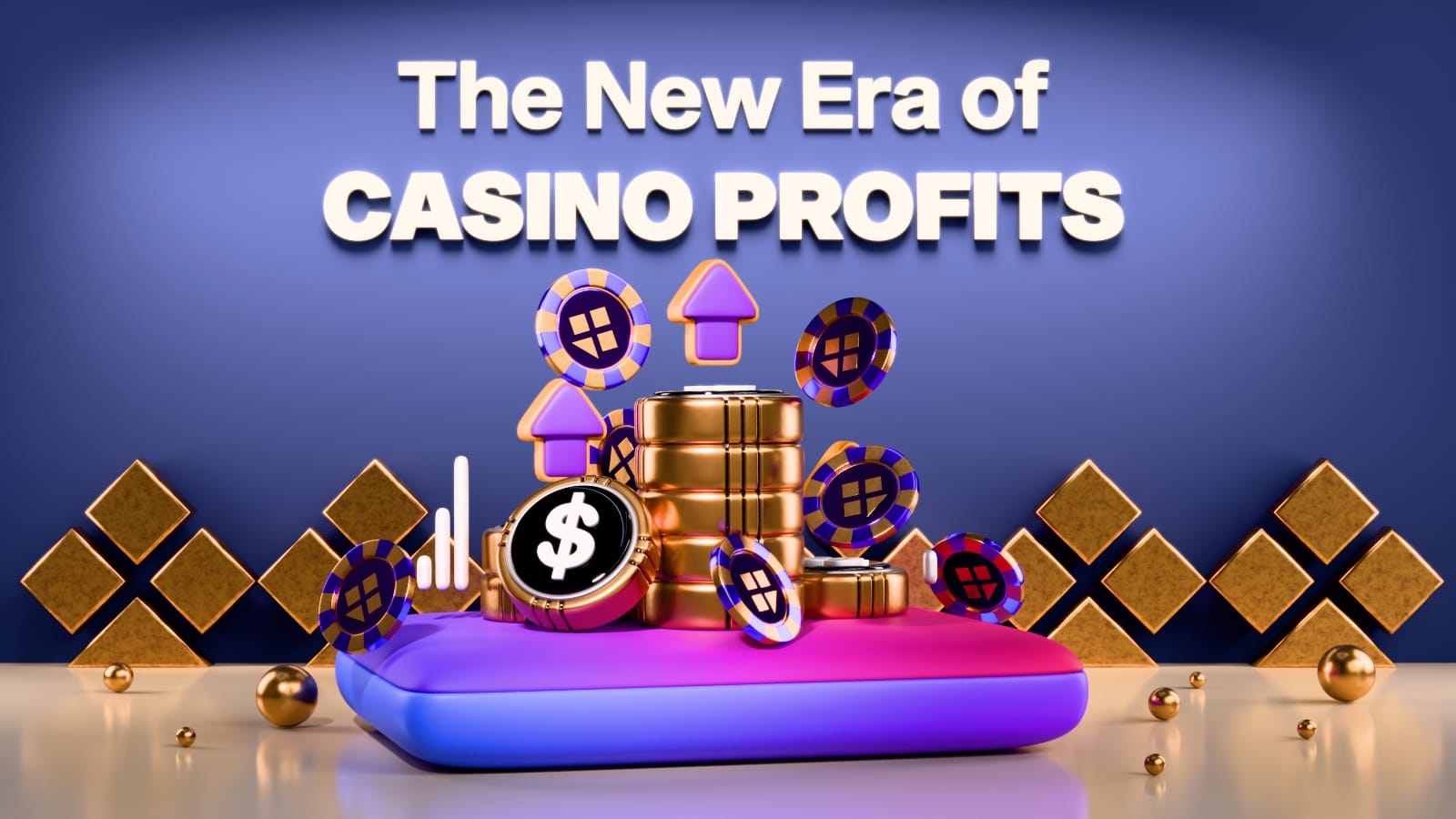From Player to Owner: The New Era of Web3 Casino Profits

For decades, casino profits were a one-way street — from player wallets straight to the house.
Whether in Vegas, Macau, or online platforms, the rules were simple: the house always wins… and the player always pays.
But Web3 is flipping that model on its head.
Thanks to decentralized protocols, open-source smart contracts, and token-powered economies, players are becoming owners — earning a share of the profits, not just chasing jackpots. And leading the charge is a new generation of on-chain casinos that reward participation with ownership.
This is the Web3 casino revolution — where players can profit with the house, not just against it.
🧠 Traditional Casinos: Profits Locked Away
Let’s start with what’s broken.
In traditional Web2 or Web1 casinos:
- The house edge (2–5%) ensures long-term profit.
- All losses go directly to the casino operator.
- Even loyal players receive crumbs — maybe a VIP badge or a free drink.
- No ownership. No transparency. No say in the system.
This profit model made casinos wildly successful — but only for the few who owned them.
The players? Just revenue sources.
🔓 Web3 Changes Everything
In Web3 casinos, smart contracts and token economics create new pathways for value sharing.
Instead of being passive consumers, users can:
- Stake capital into casino games and earn from player losses
- Vote on which games launch or get updated
- Earn platform tokens as rewards for playing or contributing
- Hold NFTs that give utility, access, or profit-sharing rights
- Build their own games and deploy them into the protocol
This isn’t just gambling — it’s gamblefi. And platforms like Ridotto are leading the way.
🏦 Introducing the Bankroll Model — You Are the House
At the heart of this shift is a concept called the bankroll — a shared liquidity pool that powers on-chain casino games.
Here’s how it works on platforms like Ridotto:
- When players bet and lose, their funds go into the bankroll.
- When players win, their payout comes from the bankroll.
- Anyone can contribute to the bankroll — and in return, earn a share of the house edge.
That means you can earn passively from every game played — without running servers, building games, or coding smart contracts.
You’re not just funding the fun — you’re profiting from it.
🎯 Real-World Example
Let’s say:
- You contribute $5,000 to Ridotto’s blackjack bankroll.
- The total bankroll is $100,000 — so you own 5% of it.
- Over a month, players wager $1M.
- Based on a 2.5% house edge, the bankroll earns $25,000.
- You earn 5% of that = $1,250 — without lifting a finger.
And you still control your funds. You can withdraw anytime, rebalance between games, or reinvest for bigger rewards.
🛠️ No Code, No Problem
One of the biggest advantages of Web3 casino ownership is accessibility.
In the old world, becoming a casino operator required:
- Licensing
- Capital
- Tech infrastructure
- Regulatory navigation
In the new world? You just need a wallet and some tokens.
Platforms like Ridotto make it possible to:
- Connect your wallet
- Deposit into the bankroll of your choice
- Monitor your rewards in real time
No code. No hassle. Just profit participation.
🌐 Community Governance: The New Casino Council
Web3 casinos aren’t just decentralized in how profits work — they’re also community-run.
With governance tokens like $RDT on Ridotto, users can:
- Vote on new game launches
- Propose features or game mechanics
- Influence how rewards are distributed
- Help shape the culture and meme economy of the platform
This creates a feedback loop where players and owners are the same — building a better experience for each other, not just extracting value.
🧬 Culture Is a Feature
Let’s be real: part of the fun of casinos is the vibe.
And Ridotto brings that full force, with:
- Community memes and inside jokes
- NFT avatars and gamified assets
- Leaderboards and contests
- Event-based launches and game nights
This isn’t a faceless betting site — it’s a social playground with financial upside.
🧠 Why This Model Works (Psychology + Economics)
There’s a reason this model is gaining traction:
| Web2 Casino | Web3 Casino |
|---|---|
| Player vs House | Player is House |
| One-sided profit | Shared profit ecosystem |
| Corporate ownership | Community ownership |
| Locked economy | Programmable tokens & liquidity |
| Passive loss | Passive income |
This creates positive-sum gaming. Players don’t just lose or win based on luck — they earn through contribution, engagement, and governance.
🚀 What Comes Next?
As this model evolves, expect to see:
- User-generated games — where anyone can build and deploy a casino experience
- NFT-powered access — VIP games, exclusive odds, and cultural collectibles
- Metaverse casinos — immersive lounges powered by real bankrolls
- Cross-chain bankrolls — contributing and earning from games across multiple chains
The casino of the future won’t live in Vegas.
It will live in your wallet.
💬 Final Thoughts: The House Always Wins — And Now, So Can You
Web3 casinos like Ridotto are ushering in a new era where profit isn’t gated — it’s shared.
No longer are players just a revenue line.
They’re:
- Owners
- Liquidity providers
- Voters
- Stakeholders
- Culture builders
So if you're ready to move from player to owner, now’s the time.
Because in this new era of Web3 gambling, you don’t just play the game — you shape it.

